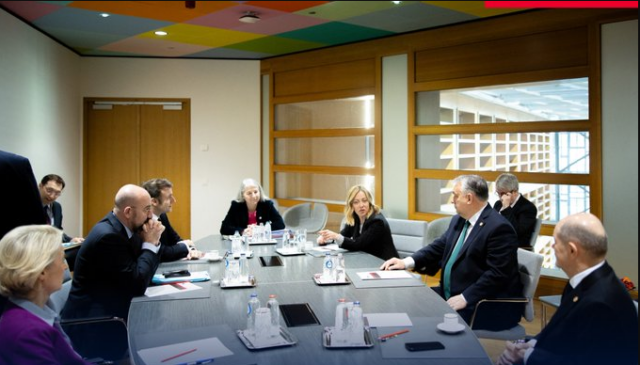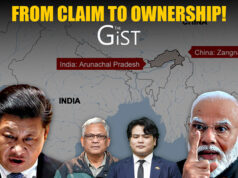European Union (EU) leaders cleared a multibillion euro funding for Ukraine, which was earlier blocked by Hungarian PM Viktor Orban. The deal was reached at a special meeting of the European Council today.
“All 27 leaders agreed on an additional €50 billion support package for Ukraine within the EU budget. This locks in steadfast, long-term, predictable funding for Ukraine. The EU is taking leadership & responsibility in support for Ukraine; we know what is at stake,” said Charles Michel, President of the European Council.
The day began with an informal conversation involving the big shots: French President Emmanuel Macron, German Chancellor Olaf Scholtz, President of EU Commission Ursula von der Leyen, Italian PM Giorgia Meloni and Hungarian strongman Viktor Orban.
And later on there was a sense of relief among European leaders. A good day for Europe, as the EU Commission president summed it up.
What Was At Stake?
Ukraine is in the midst of a tough period with aid from the US and EU held up. The $54 billion fund will be to support Ukraine till the end of 2027.
Kyiv needs urgent funds to cash in on basic services and the EU aid, likely in the form of loans and grants over the next four years, would cover both immediate and future needs.
What Will Ukraine Do With EU Aid?
The EU package will enable Kyiv to pay pensions, salaries and other costs over the next four years amid US military aid for Ukraine being held up by Congress.
Media reports suggest that the new deal includes yearly discussion of the package and the option to review it in two years if that is required.
Ukraine Welcomes EU Package
Ukrainian President Volodymyr Zelensky said that his country was “grateful” to EU leaders. He added that the package would “strengthen the long-term economic and financial stability” of Ukraine.
Ukraine’s Foreign Minister Dmytro Kuleba stressed that the aid was also about Europe investing in its own security.
Why Was Hungary Blocking Deal?
Orban has played spoilt sport for most EU decisions linked to Ukraine including sanctions against Russia. Orban, a close ally of Russian President Vladimir Putin, had repeatedly emphasised that Moscow is not a threat to Europe.
Critics believe Orban was playing hardball as he wanted to unfreeze aid worth billions that had been held up as Budapest breached EU rules.
Orban and the EU have clashed on policies related to law, corruption and minority rights. The EU believes that Orban’s policies at home have eroded democratic and EU values.
Related story:





